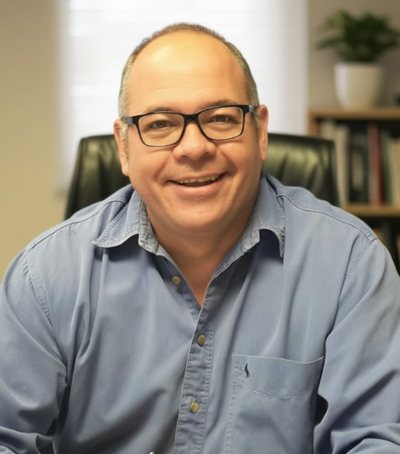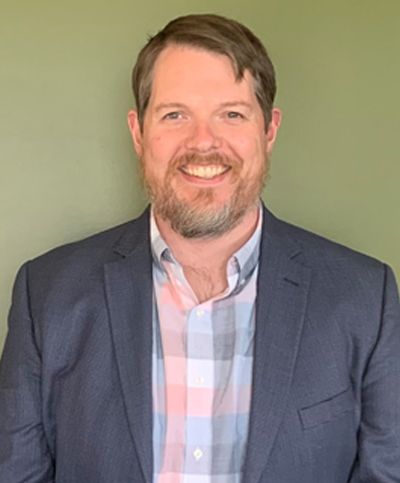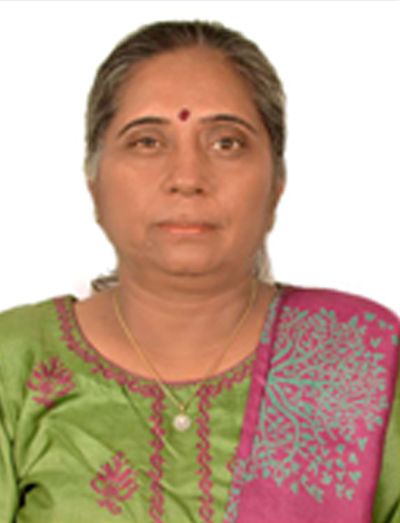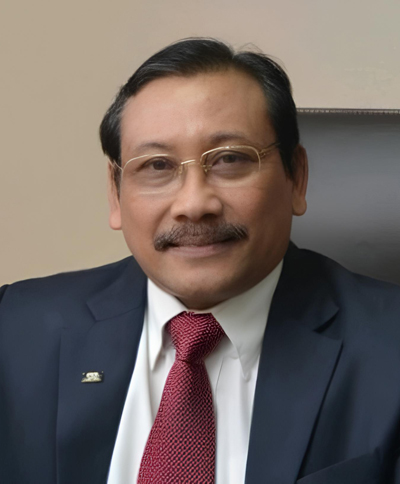Board of Directors
| ||||||||||||||||||||||||||||
Hennie Groenewald, Ph.D.
President
Dr Hennie Groenewald serves as the Executive Manager of Biosafety South Africa, bringing over three decades of diverse experience to the evolving field of bio-innovation. His career has traversed the full spectrum of the discipline, moving from foundational research in molecular biology and plant physiology to the practical realities of entrepreneurship, policy development, and governance. Having worked across academia, the private sector, and public service, Hennie focuses on enabling sustainable bio-innovation by bridging the gap between scientific potential and implementation realities. He has co-founded biotech start-ups and mentored numerous post-graduates, grounding his strategic leadership in real-world experience. Currently, he contributes to the global bioeconomy landscape through leadership roles in international societies and advisory panels, dedicated to fostering responsible research and development that drives tangible development goals in the South African context.
Detlef Bartsch, Ph.D.
President Elect
Detlef Bartsch studied biology at the Universities Münster and Göttingen in Germany. His research carrier covers plant ecology at Berlin & Aachen Universities of Technology as well as plant population genetics at University of California Riverside. Since 2002, Detlef has headed various organizational units at GMO regulatory authorities, most recently at the Department ‘Genetic Engineering and Other Biotechnological Processes’ at the Federal Office for Consumer Protection and Food Safety (BVL) in Berlin, Germany. His experience includes risk assessment & management, population biology of cultivar/wild plant complexes, conservation of plant genetic resources, environmental biosafety research, and monitoring of GMO with resistance to insects, viruses, nematodes and herbicides. The European Food Safety Authority (EFSA) appointed him for the EFSA GMO Panel from 2003 – 2012. As sideline activities, he was lecturer for Botany at the RWTH Aachen University - Institute for Environmental Research – from 2002 - 2024. He is actually lecturer at the Freie University Berlin – Department of Veterinary Science. Detlef is also member of the Ecological Society of Germany, Austria and Switzerland since for more than 35 years. He retired from his governmental duties at the end of 2025 and is now elected president of ISBR. The Orcid database lists 58 peer-reviewed publications related to biosafety research at https://orcid.org/0000-0003-2961-915
Joerg Romeis, Ph.D.
Past President
Dr. Joerg Romeis heads the Biosafety Research Group at Agroscope in Zurich, Switzerland. Agroscope is the Swiss center of excellence for agricultural research and is affiliated with the Federal Office for Agriculture. In addition, he is a lecturer at the University of Bern and an adjunct professor at the Institute of Plant Protection of the Chinese Academy of Agricultural Sciences in Beijing. Joerg holds an MSc and Ph.D. in biology and was trained as an applied entomologist with a focus on biological pest control and multi-trophic interactions. He has more than 17 years of experience in the risk assessment of genetically modified (GM) crops and in particular in the design and execution of non-target laboratory studies. His research has focused on the effects of insect-resistant GM plants, such as Bt maize and cotton, on arthropod herbivores and their predators and parasitoids. More recently, he is also studying the non-target effects of RNAi-based GM plants. In addition to primary research, Joerg has been actively involved in defining operational environmental protection goals, and in developing guidelines for risk assessment and non-target testing. Joerg is a regular participant at ISBR conferences and acted twice as chair and twice a member of the program committee.
Alvaro Eseverri-Sabate, Ph.D.
Secretary
Álvaro Eseverri-Sabaté works as EU Regulatory Affairs Manager at BASF in Belgium. He holds a degree and master’s in Biotechnology specializing in Plant Biotechnology. He spent several years working in academia, earning a Ph.D. degree in Plant Biotechnology and Associated Microorganisms from the Polytechnic University of Madrid where his research focused on engineering nitrogen fixation pathways in plants. Following his postdoctoral research at the Centre for Plant Biotechnology and Genomics (CBGP), he began working in the area of risk assessment of genetically modified crops in 2022, when he joined BASF. With a strong scientific background in plant biotechnology, Álvaro leads regulatory strategy and dossier development for biotechnology traits in the EU, with a special focus in genome editing technologies. He is actively involved in several European industry and academia organizations, including CropLife Europe, Euroseeds and PlantETP, advocating for science-based policies in agricultural biotechnology.
Karen Hokanson, Ph.D.
Treasurer
Karen is a Senior Scientific Program Manager with the Agriculture & Food Systems Institute (AFSI), where she contributes to the development and implementation of AFSI’s current and future applied research and capacity building programs related to biotechnology and biosafety. Prior to joining AFSI, Karen was a Senior Research Specialist in the Department of Horticultural Sciences at the University of Minnesota (UMN) for 22 years, where she worked mainly on projects related to biotechnology regulation and biosafety, with a focus on risk assessment. After spending her early career at USDA-APHIS as a biotechnologist, most of her career has been devoted to capacity building for the regulation of biotechnology in developing countries in Africa and Asia. She has worked over the years on projects to develop national biosafety frameworks and implement the Cartagena Protocol on Biosafety, and as a biosafety advisor on various crop improvement projects. Karen holds an MSc in plant breeding and genetics and a Ph.D. in ecology and evolutionary biology. Her basic research interests have always resided at the interface between agricultural and natural plant populations, and the influence of that interface on genetic diversity on both sides of the divide. Karen currently serves on the ISBR Board of Directors as the Treasurer and has chaired the publications committee and twice in the past chaired the symposium committee.
Jennifer Anderson, Ph.D.
Program Chair
Jennifer Anderson is a research scientist in the Regulatory Science department at Corteva Agriscience™, USA. As a subject matter expert for environmental risk assessment (ERA) of genetically modified crops, she has drafted ERAs for new GM events and traits, provided technical review of regulatory submissions, and responded to regulator questions. Jennifer also reviews scientific literature and drafts, edits and reviews publications to support global submissions. Jennifer joined the company in 2009 and prior to her current role, worked as a post-doctoral research associate at Iowa State University. Jennifer holds a Ph.D. degree in Environmental Toxicology from Texas Tech University. Jennifer is an active member in CropLife International (Environmental Risk Assessment Project team) and has participated as a member of the OECD Steering Group responsible for drafting a consensus document outlining the use of environmental considerations in the planning risk/safety assessment of transgenic plants. Jennifer has served on the scientific organizing committees for the 14th ISBGMO meeting in Mexico, as well as the 15th and 16th ISBR symposia held in Tarragona, Spain and St. Louis, MO, USA.
Andrew Roberts, Ph.D.
Publication Lead
Andrew is the CEO of Agriculture & Food Systems Institute (AFSI) and leads the development and management of AFSI’s extensive international portfolio of biotechnology-related analytical and capacity-building programs, open-access resources, and relationships with key partner organizations and stakeholder groups. His expertise is in agricultural biotechnology, environmental risk assessment, and food safety assessment for biotechnology with a focus on problem formulation. Prior to joining AFSI, Andrew worked at the U.S. Department of Agriculture in several different capacities, all related to the regulation of agricultural biotechnology. He began his career at USDA as an AAAS Risk Policy Fellow in the Office of Science of Biotechnology Regulatory Services (BRS), the group responsible for regulating genetically engineered plants at USDA’s Animal and Plant Health Inspection Service. After spending a year in the New Technologies office of the Foreign Agricultural Service serving as the lead for USDA’s efforts related to the Cartagena Protocol on Biosafety, he returned to BRS to serve in the International Affairs branch where he remained until joining AFSI. Andrew has a Ph.D. in cell and developmental biology from Rutgers University.
Vibha Ahuja, Ph.D.
Communication Lead
Vibha Ahuja, Ph.D., is the Chief General Manager of Biotech Consortium India, Ltd. (BCIL), where she began her career in 1993 and is an expert on biosafety and regulatory aspects, particularly with reference to genetically modified organisms, having more than 30 years of experience in the field. She is very well versed in issues related to the Indian biosafety regulatory frameworks and has been part of the formulation and dissemination of guidelines; also served as member of expert committees. She has expertise in planning and providing support in regulatory compliance for taking forward technologies for commercialization. She is also actively engaged as a resource expert on gene edited plants in the region. Throughout her long and distinguished career, she has been actively involved in biosafety capacity building initiatives in India and throughout South Asia. She has led several capacity building activities in the area of modern biotechnology, imparting training through seminars/workshops/ national and international training programs and preparing well researched publications for various stakeholders related to biosafety and biodiversity issues etc.
Bambang Prasetya, Ph.D.
LOC Chair
Bambang is a distinguished Research Professor at Indonesia's National Research and Innovation Agency (BRIN) and currently serves as the Chairman of the National Biosafety Commission for Genetically Engineered Products. With an academic foundation comprising a PhD and a Master’s degree in Forest Product Utilization from Georg-August University, Germany, his expertise spans biosafety, standardization, and conformity assessments. His career includes serving as Chairman of the National Agency for Standardization (BSN) and Head of the National Accreditation Committee (KAN) from 2012 to 2020, where he acted as the national focal point for ISO and CODEX international standards. Previously, he held senior leadership roles at the Indonesian Institute of Sciences (LIPI), including Deputy for Life Sciences and Head of the Biotechnology Research Center. Bambang’s research focuses on environmentally friendly bioprocesses, such as bio-pulping, biofuels, and bioremediation, utilizing microorganisms and genetically modified technology. A member of the Indonesian Academy of Sciences (AIPI) and Vice Chair of the Asian Federation on Biotechnology (AFOB), he also chairs the ISO Technical Committee on Biodiversity (TC 331). His extensive history of leading the Indonesian Biotechnology Consortium and organizing major international science congresses underscores his influential role in shaping global biotechnology standards and biosafety frameworks.











